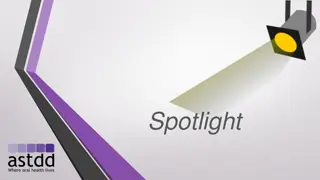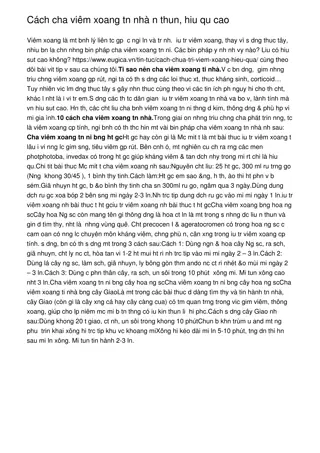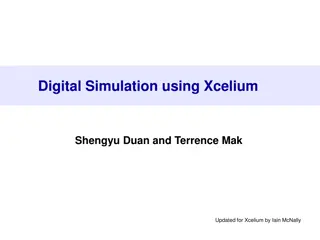
Organizational Development in Higher Education Network
Explore the realm of Organizational Development in Higher Education with ODHE Network. Discover distinctive practices, strategic approaches, and tools for positive growth. Engage in change processes to foster cultural transformation within universities. Join a community of professionals dedicated to enhancing organizational effectiveness and development.
Download Presentation

Please find below an Image/Link to download the presentation.
The content on the website is provided AS IS for your information and personal use only. It may not be sold, licensed, or shared on other websites without obtaining consent from the author. If you encounter any issues during the download, it is possible that the publisher has removed the file from their server.
You are allowed to download the files provided on this website for personal or commercial use, subject to the condition that they are used lawfully. All files are the property of their respective owners.
The content on the website is provided AS IS for your information and personal use only. It may not be sold, licensed, or shared on other websites without obtaining consent from the author.
E N D
Presentation Transcript
ODHE OD now and in the future: changing people and organisations for positive growth Meriel Box & Jean Harrison Co-Chairs, ODHE Network 1
SDF Conference Nov 2015 A bit about ODHE OD practice now What is it? What makes it distinctive? OD in the future How does what we do in OD in HE fit with the wider OD world? What are the ways OD might change in HE? How can we do OD to emphasise the Positive ? What challenges are there for changing Universities? OD approaches from the ODHE Network. Q&A 2
ODHE ODHE Strategic approaches for cultural change and development work Founded in 1993 - a long standing community of practice. For HE professionals engaged in OD work supporting a range of HE priorities. Members: Professors, Heads of Staff Development, OD Directors, OD Advisers, HR Directors, HR Business Partners and Learning & Development practitioners. Personal and career development support in OD Tools and techniques to enable cultural change Annual fee: 795, covering: Three 24 hour events (Oct, Feb, May) Membership of the OD Network (Europe) with access to resources and reduced conference fee. Support for practitioner research and/or development projects. Shared resources for collaborative work. Mentoring. For more information admin@odhenetwork.co.uk Proud owners of www.odhenetwork.co.uk 3
ODHE CPD OD theory and practice research, learning and action Networking Intelligence about others work Space to think and be curious, create and play Different perspectives on OD work Sounding board for ideas Action Learning approaches Collaborative working SIGs, SDPs Mentoring and buddying Access to expertise/deep experience OD outside the Sector 4
Where are you situated to practise OD? integrated 3. Integrated elsewhere strategically & centrally e.g . 1. Integrated into full range of HR work - a seamless weave of HR & OD services 2. Lead & develop an OD agenda with a development focus separately from HR agenda 4. Independent of professional services- importance of academic acceptability independent Within HR Outside HR ODHE 5
ODHE So what is OD? https://m.youtube.com/watch?v=fDJ VRKfr0sU 6
OD Theory Roots Applied Behavioural Science: Systems Theory Action Research Theory Change Theories: Field Theory, Group Dynamics and the Three-Step Change Model Complexity and Chaos Theories Dialogic OD Social Constructionism Social Discourse Theory 7
What is OD? A long-range effort to improve an organisation's problem- solving and renewal processes, particularly through a more effective and collaborative management of organisation culture with special emphasis on the culture of formal work teams with the assistance of a change agent, or catalyst, and the use of the theory and technology of applied behavioural science, including action research (French and Bell 1973) OD is an effort planned, organisation-wide and managed from the top, to increase organisation effectiveness and health through planned interventions in the organisations processes using behavioural science knowledge. (Richard Beckhard 2006) 8
OD characteristics Is long term and strategic. Works on the whole organisation with a focus on people. Focuses on improvement, performance or health of the whole organisation. Takes account of how the organisation works and how it could be effectively (and sustainably) changed. Includes how a thoughtful change process could combine research, learning and action. Takes account of the need for some form of appropriate planning to help scope the change so others have a route map for the journey without it feeling too prescriptive. Requires facilitation by someone with behavioural science knowledge and skills. 11
ODHE In your tables: Looking at the characteristics of OD work, identify what you think you do that is OD work, and to what extent e.g. percentage of workload? 12
OD Practitioner Work Research, data collection and analysis Meetings/conversations Networks lots of them!! Their Personal and Professional Development Planning and decision-making Facilitation lots of it!!! Challenging and arguing Developing business cases and measuring outcomes 13
What makes OD Distinctive? Process consultation The OD Practitioner OD Values 19
Consultancy cycle Phase 1 Starting the consultation Initial contract Gaining entry Phase 2 Contracting Phase 3 Collecting data Phase 7 Disengaging Phase 4 Making sense of the data and diagnosing Phase 6 Implementing the plan and taking action Phase 5 Generating options Making decisions and planning From: Client Centred Consulting by Cockman, Evans, Reynolds
OD Practitioner: Mindset Two-pronged goal of OD: Sustainability and Self-renewal Focus on People Human Enterprise A collaborative and developmental approach in our work Importance of relationship building in our work Facilitator-educator-process role, rather than expert advisor Focus on process as much as task Holistic approach (Total system) Self as instrument the big I approach - valuing the development of the personal and interpersonal capacities to be effective with many different types of people in many different situations. Live OD Values 22
OD Values Values 1950/60s Democracy Trust Openness Consensus Humanism Hope Personal growth participation Self-assessment Values added! 1970s - diversity 1980s - empowerment and self-managing teams 1990 - whole system engagement 2000s emergence, complexity networking, socially-connected structures 24
OD Myth OD strategy is shaped through a combination of senior executives, other business leaders and ..OD professionals . Garrow et al (2009) 26
OD in the future How does what we do in OD in HE fit with the wider OD world? How might it change in HE? What are the challenges of changing Universities? 27
OD evolving.. Traditional OD Change as a scientific process Socio-psychological - positivist Negative -Emphasis on problems Reactive, linear and punctuated Focuson the pastto act in the present Relatively stable and predictable world Top-down (mgt instigate & execute) Employee performance and job enrichment Change of/for employees Contemporary OD Change as a discursive process Socio-linguistic constructivist Positive -Emphasis on improvement Proactive, recursive and fluid Focus on the future to act in the present Competitive and rapidly changing world Top-down & sideways (mgt/emp execution) Employee involvement and empowerment Change with employees Emerging OD Change as a political process Socio-political -critical realist Neutral Emphasis on possibilities Emergent, rhizomatic and spontaneous Focus on the present to act in the present Turbulent and socially connected world Bottom-up (employee instigated) Employee engagement and emancipation Change by employees Employee Activism & Constructive Deviance General Approach to Change Disciplinary Area & Epistemology Focus of Change Process Characteristics Temporal Orientation Environmental Imperatives Hierarchical Ordering Employee Focus Change Logic Examples Job Design, Teamwork, & Structural Intervention AI, Future Search, & World Cafe 28
Marshak: a new consultancy cycle Entering and contracting Creating safe container for inquiry Facilitating dialogic meaning making Enacting Recycling and terminating
Latest in OD VUCA Resilience (individual and organisational) Trust and compassion New organisational forms and design Crowd sourcing and viral OD Anxiety, mindfulness and vulnerability Social and systemic leadership Encouraging reflective practice versus paralysis and inertia
WONKHE analysis Consultation to 15 January 2016 Teaching Excellence Framework not just about teaching, linked to fee levels. Deregulation - fewer bodies - HEFCE and OFFA to merge as Office for Students subscription based. HESA, QAA and Possibly HEA gone? OIA and UCAS should remain as is. New providers will be given quicker access to the HE market place accelerated degree awarding powers, quicker access funding, no cap on student numbers. 34
WONKHE analysis Research is not a major theme post Spending review the research landscape will be simplified single research funding body? Teaching and research split for good? SU and current reforms to TU laws? First ever mention of exiting the market (in an orderly fashion) marketisation complete! FOI may be on its way out (so much for transparency) alternative providers are not subject to FOI so to get a level playing field 35
WONKHE analysis METRICS, MEASUREMENT, PRODUCTIVITY, TRANSPARENCY New powers for the Secretary of State including: Setting tuition fee caps. Power over data in HE. Power for BIS (or another) to enter and inspect institutions to safeguard interests . Preferred model of making student loans compatible with Sharia Law will require legislation. (PREVENT strategy) Decline of part time HE? Is it an omission? 36
How Agile is your University? Changing Environmental Situation Strategic Gap Leading to Crisis Unchanging Organisation Paradigm and Activity 37
Adaptive Capability The ability of the university, as a living human system, to thrive on and learn from continuous waves of change, such that change becomes a natural and inevitable part of organisational life and not an isolated and threatening event. The ability to continually develop new capabilities and improve upon those that already exist, as a source of sustainable strategic advantage. Strategic Understanding Leadership Capability Alignment and Engagement Innovation and Flexible resourcing 38
ODHE Everyone is supported (and supports others as appropriate) through the change Moore s Chasm To the left are those who are more focused on the change rather than considering the needs of and impact on others (students, colleagues, customers etc.) To the right we see the focus shift to supporting those who will ultimately determine the success (or otherwise) of any major change initiative. Everyone provided with appropriate resources Everyone encouraged to engage in the change Everyone identifies a compelling reason for change Accepting Ask people to change Tell people to change Adapting-Adopting Change imposed Questioning-Understanding Transactional Consultative
Characteristics of an Agile University? Clarity about organisational purpose as a 'strategic compass' A unified and integrated top team, with a collective accountability for delivering the strategy, that creates power in others and avoids 'command and control where possible Access to high quality and timely data Capacity for high quality, 'intelligent , strategic thinking and dialogue that converts data in to usable knowledge Demonstrates deep empathy with, and understanding of, customers and stakeholders Knows where to go tight (establishing boundaries) and loose (trust) 40
Characteristics of OD interventions that make a difference in HE THEY typically: Grow from a significant and imminent driver for change which is widely recognised and accepted (TEF?) Engage a multi-layered team, which spends time muddying about , finding ways forward which work in the specific context, adapting approaches borrowed from elsewhere Secure the engagement of the senior team, who also adapt and learn as things progress Acknowledge the scale of the task and are realistic about timescales Sometimes they make selective use of external frameworks Open up the issues and don t rely on the first diagnosis Develop change capability across a cross-section of staff; work inclusively, informally Stick with it over time bring the various pieces in the picture together - do the jigsaw Make selective and intelligent use of evidence to measure progress. 42
Collecting data QM current (?) QM desired (?) Flexibility Clan Adhocracy Managing teams Managing innovation Based on the work of Cameron & Quinn (Competing values framework), this model offers a way of looking at Queen Mary s culture. The quadrants focused on adhocracy (i.e. nimbleness / responsiveness), market orientation and internal development (Clan) all need strengthening, with a consequent reduction in the degree of process-oriented control). Managing interpersonal relationships Managing the future Managing the development of others Managing continuous improvement Internal External Managing co-ordination Managing competitiveness Managing the control system Energising employees Managing acculturation Managing customer service Hierarchy Market-orientation Control 43 Source: Cameron & Quinn
ODHE People Management Framework (PMF) Winner: UHR Award 2014: HR Organisational Impact University of Leeds
PMF : Part of a 10 year approach Becoming an Employer of Choice Balanced Scorecard = measures and accountability Measures reviewed each year Staged approach, PMF itself not until half way point Cross University team working Tenacity and patience
ODHE Westminster Change Academy 2011-2016
Lessons learned Don t kill new ideas use small scale experiments and trials and rapidly learn from these by putting in place easy to use mechanisms for feedback. Don t just settle for the usual suspects as sources of feedback. Drop ideas that don t work. Purpose is key - be passionate about the difference you can make by focusing on purpose and outcomes. Know where to go tight and loose let go of control by establishing boundaries, support and accountabilities and then trust people Co-creation the people closest to the issue, need to be central to the idea work with a coalition of the right collaborators. Pursue excellence continuous improvement is crucial 48
Not just about models: YOU!!! What is your OD skills set? What assumptions do you operate from? What interventions do you favour? Are you an expert, capacity builder, or process consultant? Do you behave as if you are an OD practitioner? How do YOU do OD ? 49



